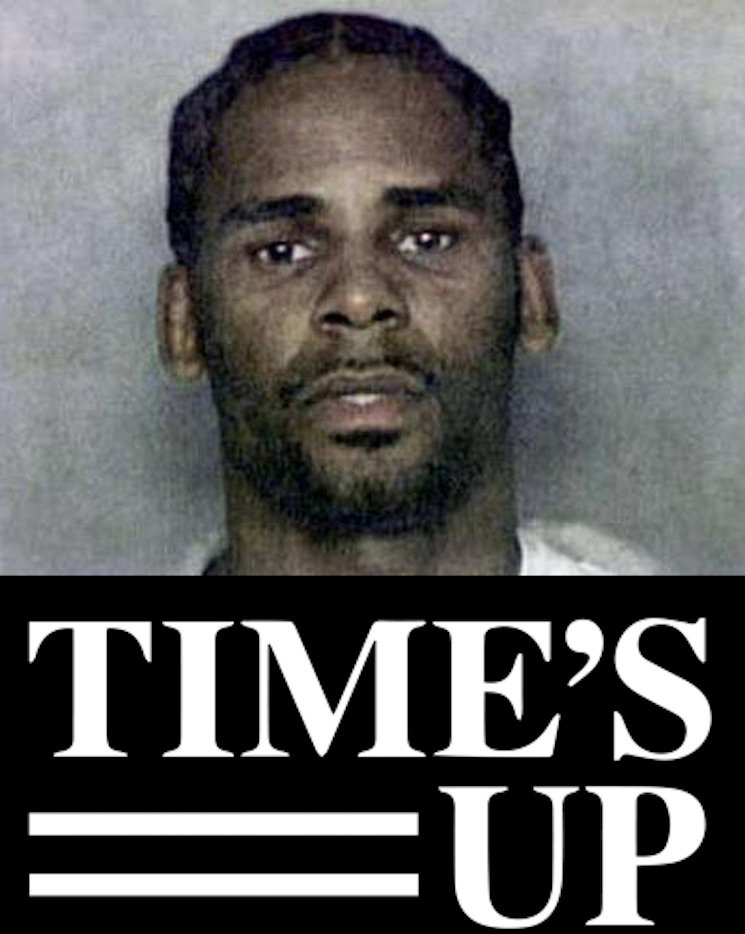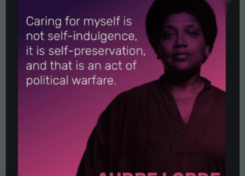Once upon a time, I used to be a fan of R. Kelly.
With his catalog of catchy R&B grooves, smooth-as-silk tenor and a ‘Midas Touch’ in the studio that produced hits for himself and dozens of fellow performers, the Chicago native became one of my generation’s most successful artists. Few disputed his self-proclaimed moniker of “King of R&B.”
 Unfortunately, only a few years into his “reign,” I noticed that R. Kelly’s songs became less about love and more about sex. Also, while his record sales and popularity increased, so did salacious rumors and disturbing patterns of exploitative behavior involving Kelly and young girls. After a marriage license surfaced in 1994 of the then 27-year-old’s marriage to his 15-year-old protégé, the late Aaliyah Haughton, and years later, the emergence of a sex tape with yet another alleged underaged girl, I could no longer support his music. Songs I used to enjoy had now developed an intolerable taint.
Unfortunately, only a few years into his “reign,” I noticed that R. Kelly’s songs became less about love and more about sex. Also, while his record sales and popularity increased, so did salacious rumors and disturbing patterns of exploitative behavior involving Kelly and young girls. After a marriage license surfaced in 1994 of the then 27-year-old’s marriage to his 15-year-old protégé, the late Aaliyah Haughton, and years later, the emergence of a sex tape with yet another alleged underaged girl, I could no longer support his music. Songs I used to enjoy had now developed an intolerable taint.
Many in his fan base, however, enamored by his talent, and hard-knock-life narrative, not only ignored the speculation about Kelly, but practically elevated him to folk hero-level status. For them, R’s music would play on and his alleged deviances, to hear them tell it, were the result of status-chasing groupies or efforts by mainstream society to “keep a brother down(?!)” His 2008 acquittal on child porn charges, according to Kelly’s loyal subjects, were the result of innocence, rather than legal maneuvering that was little more than a settlement-induced slight of hand.
Later, as I remarried and welcomed daughters into the family and, for the sake of my conscience, kept as much distance as my music critic career allowed me to, I watched in a combination of shock and revulsion as the awards and superstar collaborations continued. Year after year, despite the mounting questions, R. Kelly’s silence on the subject remained unquestioned. Albums were released, tours commenced—yet right in plain sight, teenagers and young women were finding their narratives of rape and abuse drowned out by repeated requests for “Ignition,” “Fiesta,” “Bump-N-Grind” and “Steppin’ In The Name of Love.”
 Recently, however, victims and insiders finally got their say with Lifetime’s six-part series, Surviving R. Kelly. According to Nielsen, over 2 million viewers watched as intimates and associates shared their experiences with the singer. The triumphant rise of a young, shy boy who blossomed from poverty to superstardom through music was stunted by years of molestation that Robert experienced as a child. “…..I was molested from 7 to about 13 or 14 by people in my family,” Kelly confesses during a 2012 shared videotaped interview excerpt with journalist Tavis Smiley, “I know I became sexual at an early age because of that.”
Recently, however, victims and insiders finally got their say with Lifetime’s six-part series, Surviving R. Kelly. According to Nielsen, over 2 million viewers watched as intimates and associates shared their experiences with the singer. The triumphant rise of a young, shy boy who blossomed from poverty to superstardom through music was stunted by years of molestation that Robert experienced as a child. “…..I was molested from 7 to about 13 or 14 by people in my family,” Kelly confesses during a 2012 shared videotaped interview excerpt with journalist Tavis Smiley, “I know I became sexual at an early age because of that.”
In the shows that followed, the revelation of victimization that R. Kelly endured, and seemed to repeat as an adult, is a heartbreaking confirmation that ‘hurt people hurt people’: charges may be imminent in both Georgia and Illinois. Incredibly, despite the apparent lack of remorse by Kelly, there is still a wholesale discounting of his predatory actions. Why are facts still stretched beyond reason to accommodate, rather than indict, this troubled man, and what does it say about the worthiness of black girls and women when their peers value R. Kelly’s hits more than their pain?
There was a 2005 episode of the edgy animated series, The Boondocks, that parodied his legal battles: as the cartoon version of R. Kelly starts to sing his way through a closing argument, Riley Freeman reads the starstruck courtroom the riot act: “We all know the [expletive] can sing, but what happened to standards? ……Don’t pretend the man is a hero! Act like you’ve got some [expletive] sense people!”
If Surviving R. Kelly series brings closure and consequences, it will finally prove two things: one, justice delayed isn’t justice denied. And two, our innocence cannot be bought for, or subjugated against, a simple song.
—





1 Comment
[…] us better on a one-on-one level. Otherwise, randomly discussing the convictions of Bill Cosby or R. Kelly—-just two examples of many—-might be seen as a deliberate attempt to provoke a […]
August 20, 2020 at 3:41 pm